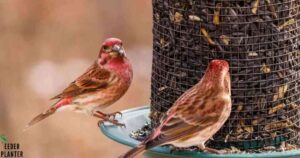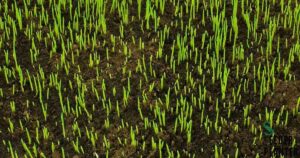Electroculture is the latest and new garden techniques. Copper is important micronutrients for the plant growth. And the ability of plants to uptake copper is different from one another. Plants can uptake copper in its certain forms. It is useless for the plants if it does not provide them in acidic conditions.
Its purpose is to activate some enzymes in the plants which plays an important role in Lignin Synthesis. It is also used for the metabolism of carbohydrates and proteins. But some people are also confused about “Does Copper wire Help Plant’s Growth?” After reading this article you will be able to understand the importance of copper.
It gives colour to the fruits and vegetables. But along with its deficiency can lead to wilt the leaves. Due to it the leaves may shorten in size. Its overuse may restrict the growth rate. So you should have proper knowledge about it. So whenever we put wire around the plants it helps in its growth and prevents the plants from diseases.
The Copper Help Plant’s Growth
In this method electricity is used as a stimulator..
- A copper wire will activate the soil for healthy growth of plants.
- It creates an environment between the atmosphere for providing the essential nutrients to plant
- It helps the plants to bloom.
- With the help of wire water is conserved
- By using this method you will get better results than the traditional method.
- This process reduces the need of fertilizer
- For proper movement of nutrients
- It makes the plants to resist against the drought, heat and cold
- Through this way the photosynthesis improves
It involves different modes
There are following modes through which Copper Help Plant’s Growth.
- Low amount of current is used through water or soil.
- An electromagnetic field is used around the plant with these wires.
- Use electricity for successful growth.
Different Types of Copper Wiring
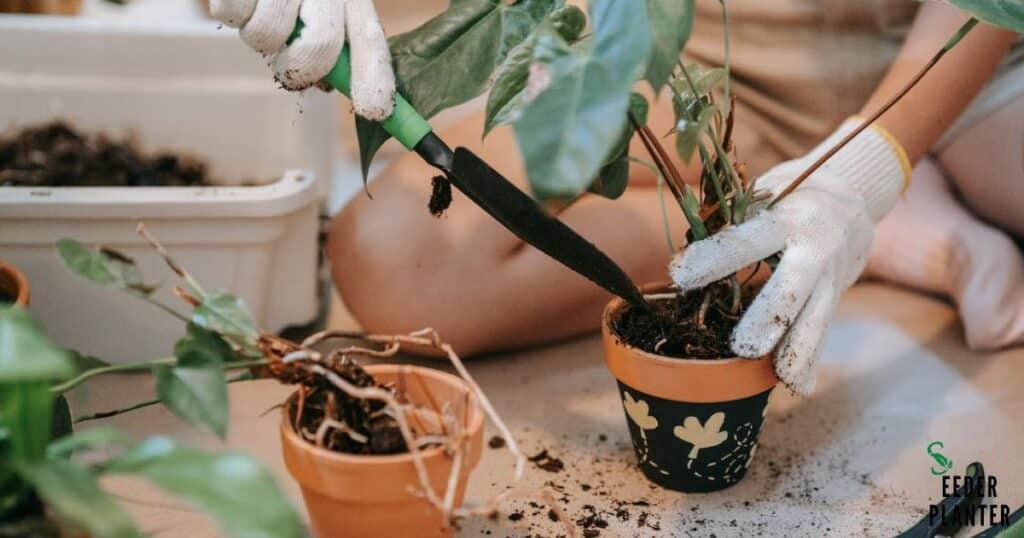
When it comes to gardening, copper wiring can be used for various purposes, such as creating structures for plants, providing support, or incorporating it into electroculture experiments. The choice of copper wiring depends on the specific application and requirements. Here are some types of copper wiring that might be used in gardening:
Bare Copper Wire
These uncoated Copper Help Plant’s to grow. It’s often used for grounding purposes or to create custom structures for plants.
Copper Coated Steel Wire
This type of wire has a steel core with a thin layer of copper coating. It provides the strength of steel along with some of the benefits of copper, such as resistance to corrosion.
Copper Clad Aluminum (CCA) Wire
CCA wire has an aluminum core with a thin layer of copper coating. It’s lightweight and can be more cost-effective than pure copper wire. However, it may not offer the same level of conductivity as solid copper.
Insulated Copper Help Plant’s Growth
Copper wires can come with various types of insulation, such as PVC (Polyvinyl Chloride) or other materials. Insulated wire is commonly used for applications where protection against environmental factors is required.
Solid vs. Stranded Copper Wire
Copper wire can be solid or stranded. Solid copper wire consists of a single, solid conductor, while stranded copper wire is made up of multiple thin strands twisted together. Stranded wire is more flexible and is often used in applications where flexibility is important.
Copper Mesh
Copper mesh can be used to create protective barriers or screens around plants. It may deter pests, and its conductivity properties might be explored in electroculture experiments.
Copper Grounding Rods
While not exactly wiring, copper grounding rods are used to create grounding systems in gardens. They help in dissipating excess electrical charges and can be relevant in electroculture setups.
Uses through which Copper Help Plant’s Growth
Durability and longevity of copper wire
Copper wire is a durable and long-lasting choice for gardening applications due to its inherent corrosion resistance. This resistance to rust and degradation ensures that copper wiring maintains its structural integrity over time, even when exposed to varying weather conditions in outdoor settings.
Its longevity makes it a reliable option for various garden-related uses, such as connecting electrical components, providing stable support for plants, or serving as a conductor in electroculture experiments.
Ability to deter pests and fungi
Copper wire possesses natural anti-fungal and pest-deterrent properties, making it a valuable tool in gardening. When strategically placed or incorporated into the soil, copper ions leach into the surroundings, creating an inhospitable environment for pests and fungi. This inhibits their growth and propagation, contributing to a healthier and more resilient garden.
Copper’s conductivity allows it to be integrated into electrical systems for electroculture, potentially offering a dual-purpose approach to fostering plant vitality and protection.
Use of copper wiring as a natural pesticide
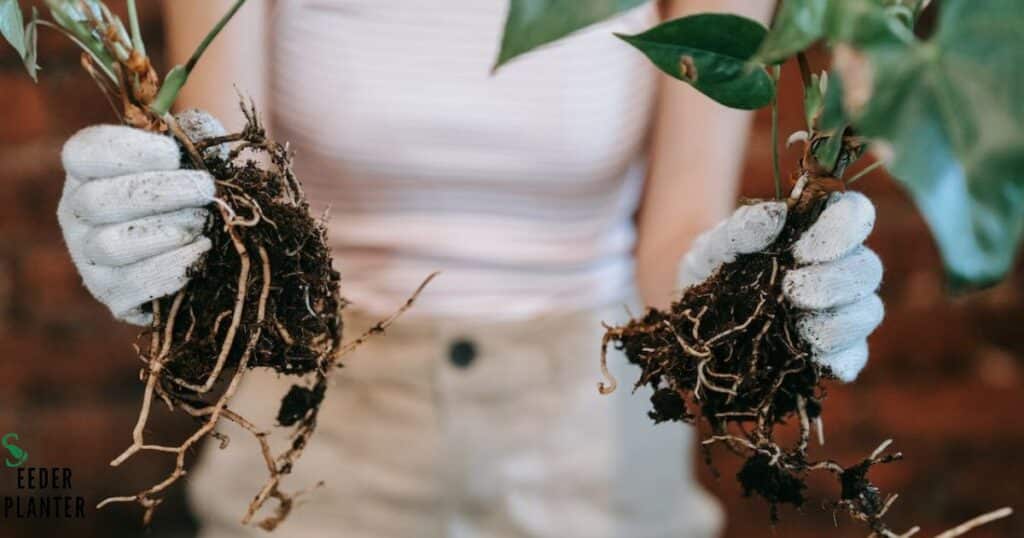
Copper wiring can be employed as a natural pesticide in gardens and agriculture. When wrapped around plant stems or placed in the soil, copper ions are released, acting as a deterrent for snails and slugs.
These pests are repelled by the presence of copper, reducing damage to plants. The copper disrupts their movement and feeding patterns, offering an eco-friendly solution to protect crops without the need for harmful chemicals.
Use of copper wiring to improve soil health
Copper wiring can enhance soil health by promoting microbial activity and nutrient availability. When copper is introduced to the soil, it acts as a catalyst for beneficial microorganisms, aiding in the decomposition of organic matter.
This process enriches the soil with essential nutrients, fostering a healthier environment for plant growth. Additionally, copper has antimicrobial properties that can help control harmful pathogens in the soil, further contributing to improved overall soil health.
Copper Toxicity Concerns in gardening
Copper toxicity in gardening raises concerns as excessive copper levels can harm plants. While copper is essential in trace amounts for plant growth, an excess can lead to toxicity. It affects soil microorganisms, disrupting nutrient cycling.
Gardeners must be cautious with copper-containing pesticides and fertilizers, as they can accumulate in the soil. Regular soil testing and moderation in copper application are crucial to maintain a healthy and balanced gardening environment, promoting plant well-being without risking toxicity issues.
How to handle copper wire safely?
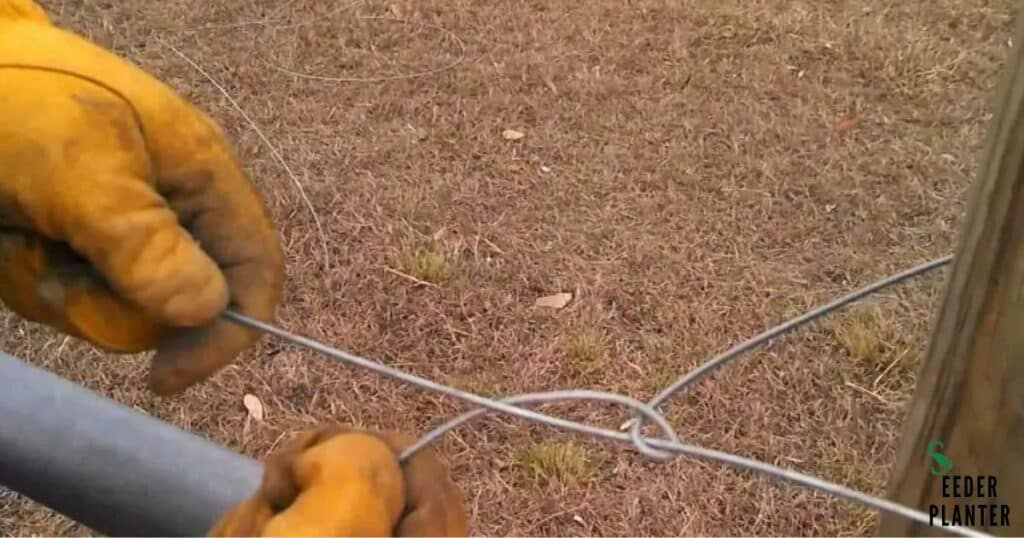
When handling copper wire in gardening, wear gloves to protect your hands from sharp edges. Use wire cutters for precision and avoid using your hands to bend or cut the wire. Make sure the wire is clean and free from any sharp protrusions to prevent injuries.
When securing plants or creating structures, wrap the wire gently to avoid damaging stems or branches. Dispose of used wire properly to prevent hazards in the garden. Always exercise caution to ensure your safety and the well-being of your plants.
How to care for copper wire in the garden?
To care for copper wire in the garden, follow these simple steps. Firstly, ensure the copper wire is clean and free from debris to prevent corrosion. Regularly inspect the wire for any signs of wear or damage. Apply a layer of protective coating, such as clear lacquer, to shield the copper from the elements.
When burying copper wire underground, use conduit or PVC piping to protect it from soil and moisture. Keep the wire away from direct contact with plants to avoid potential harm. Lastly, store excess copper wire in a dry, cool place to prevent oxidation.
Due to this phenomenon Copper Help Plant’s growth.
How to Promote Electroculture in Your Garden?
Start with Research: Learn about electroculture benefits for plants.
Choose Suitable Plants: Pick plants that respond well to electrical stimulation.
Build Simple Devices: Create basic electroculture devices using copper wire and small batteries.
Experiment with Voltage: Test different voltage levels to find optimal stimulation.
Apply Electric Pulses: Apply short, mild electric pulses to the soil or plant leaves.
Monitor Growth: Regularly observe plant growth and health for positive changes.
Share Results: Document your electroculture experience and share on social media or gardening forums.
Educate Others: Encourage fellow gardeners to try electroculture by sharing your knowledge.
Host Workshops: Organize small workshops to teach electroculture techniques.
Stay Eco-friendly: Ensure electrical components used are eco-friendly and sustainable.
Plants that Show the Best Results with Electroculture
There are following plants that show the results
1. Tomato plants respond well to electroculture, enhancing growth and fruit yield.
2. Cucumber plants exhibit improved health and productivity when subjected to electroculture.
3. Corn crops show promising results with electroculture, leading to increased harvests.
4. Strawberry plants benefit from electroculture, promoting better fruit quality and quantity.
5. Wheat crops demonstrate enhanced growth and resilience through electroculture methods.
6. Bell pepper plants thrive with electroculture, producing larger and more abundant peppers.
7. Potato plants exhibit improved tuber development when electroculture techniques are applied.
8. Lettuce crops show increased leaf growth and overall vitality with electroculture.
9. Grapevines respond positively to electroculture, promoting better grape production.
10. Citrus trees, such as orange and lemon, show improved fruit quality and yield with electroculture.
Frequently Asked questions
Does Copper Help Plant’s Growth?
Yes, its balanced amount is good, but high amounts can reduce seed germination.
What plants are sensitive to copper?
There are following plants that are sensitive to copper like crucifers, lettuce and strawberries.
How do you use copper wire for plants?
Wrap copper wire around plant stakes or incorporate it into the soil to create a simple electroculture setup, fostering plant growth through enhanced nutrient absorption.
What wire is safe for plants?
Steel,Aluminium or Copper wire are best for plants.
What are the symptoms of copper deficiency in tomatoes?
Due to deficiency it reduces the growth and curls the leaves in upwards or inwards direction.
Final Thoughts
In a nutshell, copper plays a big role in helping plants grow. It helps them soak up nutrients and keeps important processes going smoothly. Digging into how copper and plants work together, it’s clear that this element is super important .By understanding and using the benefits of copper, we’re setting the stage for a future where our plants thrive.It leads to plenty of good harvests and a balanced environment.

I am Alexander James, a seasoned professional with 4 years of expertise, brings passion and skill to every project. Elevate your experience with my knowledge and creativity.
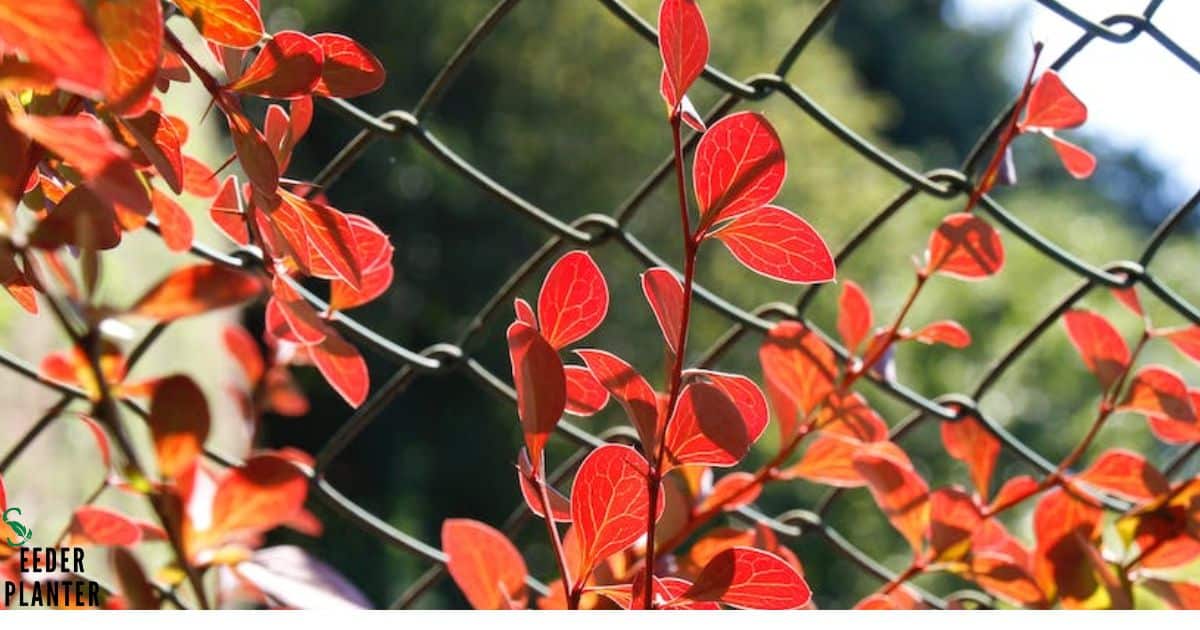


![Hollyhock Seeds: The Complete Guide to Success [2024]](https://seederabout.com/wp-content/uploads/2024/10/Hollyhock-Seeds-The-Complete-Guide-to-Success-2024-300x157.jpg)

